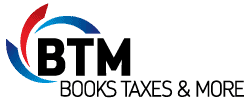This past weekend, President Trump signed the largest expenditure bill in history. HR 748, “The Coronavirus Aid, Relief, and Economic Security Act” (CARES Act) has all sorts of benefits. Setting the politics aside, let’s look at just a few of the provisions.
For Individuals
Recovery Rebates – This is the term for the $1,200 for single and head-of-household taxpayers. Married couples filing jointly will receive $2,400. Taxpayers with children will receive $500 for each child. This advanced tax credit phases out starting at $75,000 Adjusted Gross Income (AGI) for singles, $112,500 AGI for Head of Households and $150,000 for married filing jointly.
These rebates are to be direct deposited in the taxpayer’s accounts assuming the IRS has the banking information. There is one caveat, the taxpayer must have filed in either 2018 or 2019, whether required to or not under the law. For those who haven’t filed, or for whom the IRS doesn’t have banking information, there are provisions to help. The Department of the Treasury will set up a web portal for taxpayers to enter the bank information. For those who haven’t filed due to a lack of taxable income, a simplified procedure will be available soon at irs.gov/coronavirus.
The IRS will waive the 10% early withdrawal penalty for coronavirus-related distributions from retirement plans and provides the option of recontributing the funds for up to three years after receiving the distributions.
The IRS will temporarily waive the required minimum distributions rules for 2020 for defined contribution plans, including an eligible deferred compensation plan, and individual retirement plans.
The law will allow those who itemize to deduct up to $300 for charitable contributions and relaxes the limitations on deductible charitable contributions for taxpayers. Additionally, the act modifies the limitations on other charitable contributions and increases the limit on contributions of food inventory.
It also excludes from income certain student loan debt repaid by an individual’s employer for repayments made after March 27, 2020 and before 2021.
CARES Act has some non-tax provisions that are useful for individuals. Significantly among them is the increase in unemployment compensation by extending coverage by 13 weeks. It also provides individuals with $600/week of federal assistance on top of normal state benefits. Under the newest unemployment compensation rules, being furloughed or having hours cut back can get help during this time when so many people are staying at home either by choice or necessity.
Business Tax Assistance
Provides employee retention credit against certain employment taxes of 50% of employees’ wages if the business closed due to COVID-19, while extending the time for paying payroll taxes. The Act temporarily repeals limitations on certain operating losses and extends the carry-back of five years for losses incurred between 2017 and 2026.
The Act eliminates the limitation on excess losses for our farmers for 2017 through 2026.
The Act modifies the credit for prior year minimum tax liability of corporations by reducing the limit on the refundable part of the credit. It also modifies deduction limitations on business interest by increasing the taxable income which limits the deduction from 30% to 50%.
Fixes a technical glitch in the Tax Cuts and Jobs Act, allowing qualified improvement property to qualify for 15-year depreciation property and bonus depreciation.
It also provides a temporary a temporary exception from excise taxes for alcohol used to produce hand sanitizer.
Small businesses also have benefits from the CARES Act. It creates a $349 billion in payroll protection loans with conversion of some parts, if not all, of the loans to grants. The Act also establishes $500 billion fund for distressed businesses administered by the Secretary of the Treasury. Finally, The Act provides $130 billion in direct aid to states and local governments plus another $130 billion going directly to the healthcare system.
There are a lot of complicated provisions in the over 600 pages of this law. The above is a short summary. The act itself is over 600 pages. While some of the provisions border on automatic such as the Recovery Rebate, some have application processes through the Small Business Administration or local banks.
At Books, Taxes & More, we stand ready to support our clients in all aspects of the CARES Act, support. There are areas such as loan application where other subject matter experts will need to be brought in and we know trusted advisors who can guide you through the process with our assistance.
